'I finally feel at home working as a surgeon in Scotland'
- Published
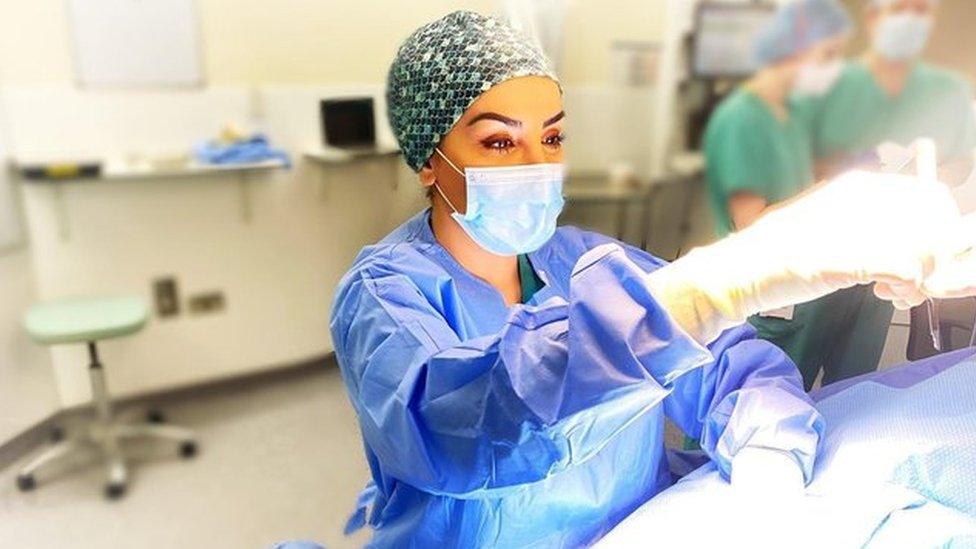
Dr Maya Shahsavari is an ear, nose and throat surgical registrar
For Dr Maya Shahsavari, the last year working on the NHS frontline during the Covid pandemic has been tough.
The 37-year-old, who sought asylum in the UK from Iran when she was 13, works in Scotland as an ear, nose and throat surgical registrar.
Based at Ninewells Hospital in Dundee, she has experienced the effects of Covid first-hand.
But despite those challenges, she finally feels at home for the first time in more than 20 years.
When Covid arrived in Scotland last year, Dr Shahsavari said she felt unprepared for what working in a pandemic would be like.
"They prepare you for a global pandemic in medical school for like a week," she said.
"I remember being sat in this class and thinking: 'What's the point of this? When will I ever be in a global pandemic?'
"Then when the pandemic did hit, I couldn't believe it. It was like a horrible nightmare."
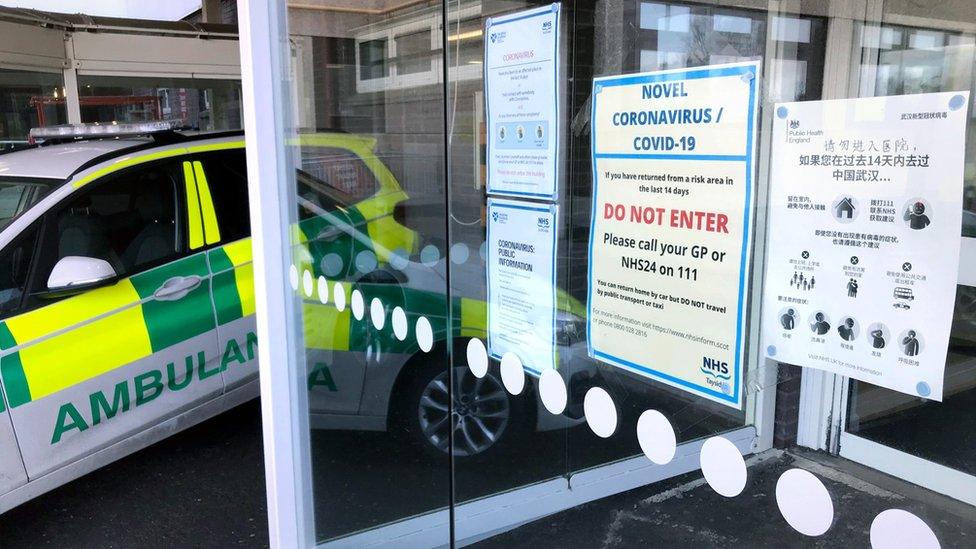
Information was changing quickly at the start of the pandemic
Dr Shahsavari sometimes had to examine patients in their cars when there was not enough space in the hospital.
"What we found quite difficult was that information was given to us every hour, and that information could change every hour," she said.
"It was hard to keep up with the change and knowing if you were doing the right thing for patients. It was a lot of pressure."
But she said she was proud of how her team dealt with the pandemic.
"That's what the NHS does best, we came through," she added.
'We moved to the UK with nothing'
Dr Shahsavari's journey to becoming an NHS surgeon was far from conventional.
When they were teenagers, her parents were political activists in Iran, campaigning for free speech.
Because they had been arrested a few times, Dr Shahsavari said their names were included on a database used to keep tabs on campaigners.
When her parents were arrested again in the 1990s, years after they had stopped campaigning, they believed their lives were in danger.
The family decided that they had to flee Iran.
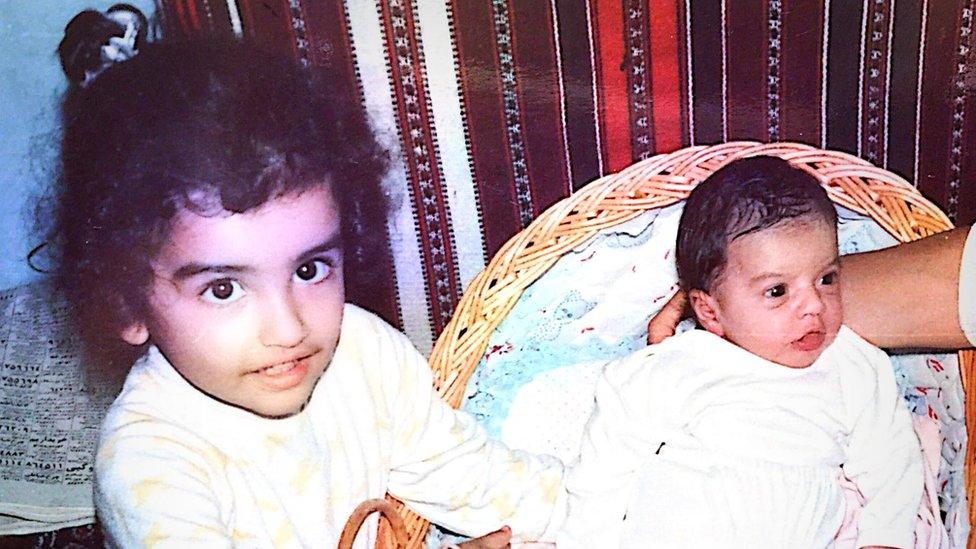
Maya grew up in Iran but her family fled to the UK when she was 13
"We gave all of our things away, sold what we could and moved to the UK with absolutely nothing apart from the clothes we were wearing," she said.
"I was feeling very depressed and confused at the time, but I remember my dad saying that even though I'd lost my home and luxuries in life, I had gained something that they couldn't give me before - freedom.
"So he said that I should make sure that whatever it is that I do, I don't look back at my life and think that I've wasted that opportunity.
"He told me to think about how I wanted to give back to the community I'd entered."
She set her sights on becoming a surgeon. But there were more hurdles to overcome.
When she arrived, she did not speak a word of English.
"I went from being top of my class in Iran to being at the bottom," she added.
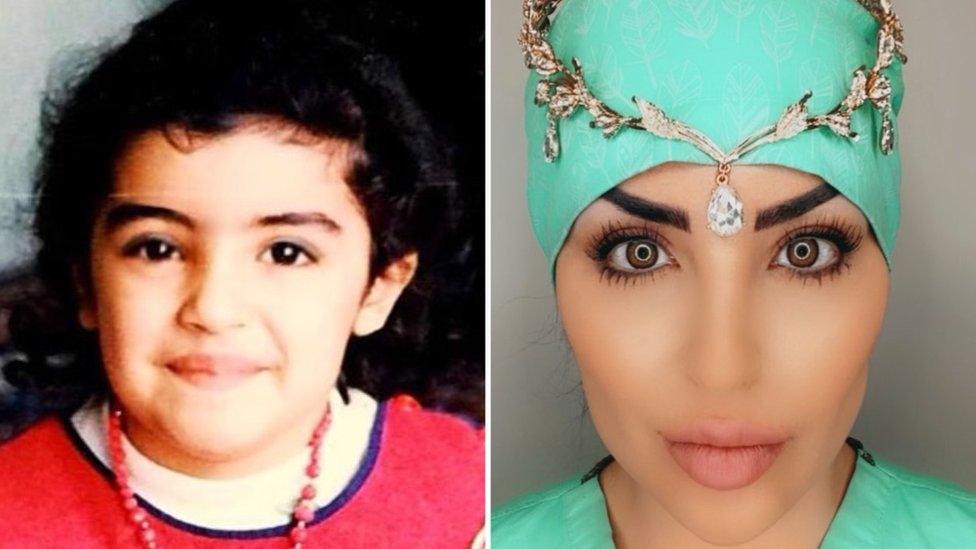
Her university applications were initially rejected for medicine, so she studied biomedical science, followed by a masters in genetics.
However, she never gave up her dreams of becoming a surgeon.
She was finally accepted into medical school, qualifying from St George's University of London.
Her job eventually brought her to Scotland, where she has found a "magical" country that feels like home.
"I never really felt at home since leaving Iran," she said.
"I liked my life down south, but something was always massively missing."
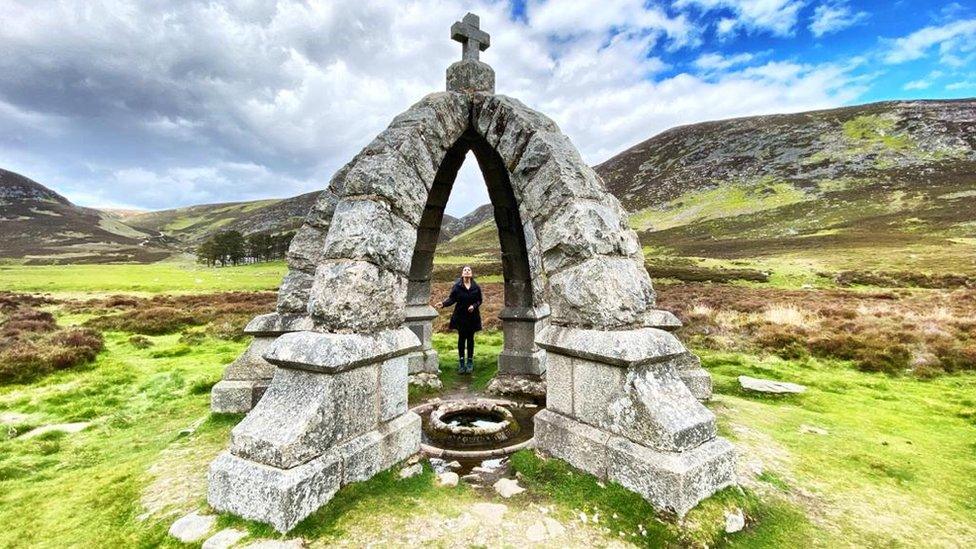
Maya has enjoyed exploring Scotland and says it is a "magical" country
When she was offered a job in Dundee, Dr Shahsavari said she didn't even know where it was.
But the moment she travelled across the Tay Bridge, she saw the scenery and "felt different".
"The first weekend I was here I started exploring. It was absolutely amazing and it just felt like home," she said.
"The nature of Scotland has just drawn me in. And the people - they are just on a different level.
"They are honest, kind and supportive. There has never been a time where I have asked somebody for directions up here and they have not walked me halfway there."
Reflecting on her journey from Iran to her life now in Scotland, Dr Shahsavari says her story is proof that "horrible struggles can end well".